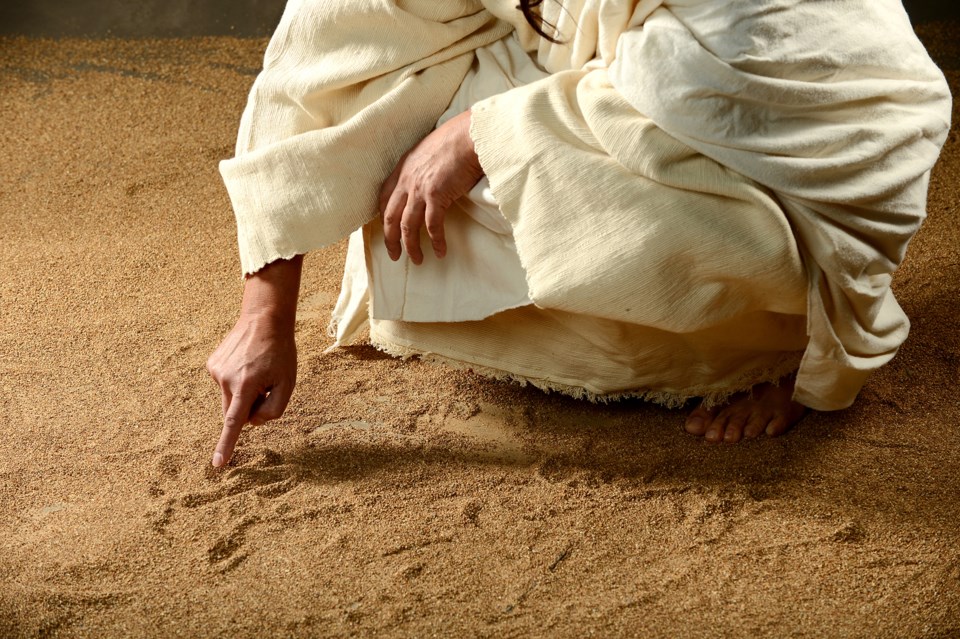In my last two submissions to ThoroldNews, I have been focusing on some different tenets of the “liberal Protestant” Christianity preeminently associated with The United Church of Canada, the Christian tradition in which I serve. Previously, I have written about the place and understanding of the Bible in the liberal Protestant tradition, and of the understanding that we have of Jesus of Nazareth, the Second Person of the Trinity, and Christ of God.
Today, I would like to pick up on our understanding of Jesus the Christ, and of the consequent implications for the claims for life that we might make as being Christian.
When I was serving a United Church congregation in Oakville some years ago, I was called on by the Rev. David Mainse and Crossroads Christian Communications. I was asked to be the speaker for one episode in their early morning “Rise and Shine” segments. For no particular reason, I quite readily accepted the invitation. Only after I had hung up the phone did I wonder why Crossroads Ministries, a decidedly conservative Christian tradition, had called on a decidedly liberal Protestant to speak. I called back. The response assigned to Rev. Mainse was that he believed that different people would hear the Gospel expressed in different ways; and when I heard that particular response, my respect and already deep appreciation for Rev. Mainse only increased.
The Gospel word is different for different people. For different people, it is spoken in different ways; and for different people, it is heard in different ways. But the message, and the way it is conveyed, must always be for life and love and healing, and for overcoming all divisions that compromise our being with each other as children of the Living God.
In Christian theological parlance (and most certainly, not every person claiming to be Christian has positive regard for theology, “God talk”), Christian traditions have either a “high Christology” or a “low Christology” (and, presumably, varying levels in between). A “high Christology” emphasizes the “divinity” of Jesus; a “low Christology” emphasizes the “humanity” of Jesus.
Orthodox and evangelical traditions tend to embrace a “high Christology”; liberal Protestantism, a “low Christology." Accordingly, Orthodox and evangelical traditions tend to emphasize the themes of adoration and submission and the life to come, whereas liberal Protestantism emphasizes Christ with us, the Reign of Christ (the Kingdom) within us, and the goal of salvation and of hope in the world we share with one another now and with all people ‘round the world - regardless of creed or clan or colour.
Liberal Protestants start with the essential goodness of every human being, which gets lost, and can be redeemed and rescued by the living Christ.
Liberal Protestants would claim that the Holy Spirit is at work, and free to lend the Spirit’s strength to the healing of the world in every faith tradition and in every person everywhere ... assuring we are not alone and on our own; that the face of Christ can be seen in everyone; and that the saving work of Christ is meant for this world, and not for what might be appreciated as “the world to come."
For liberal Protestants, the fullness of the Christian faith might be summarized in a message and a promise to the world: that God is with us, we are not alone; there is nothing we can do to make God stop loving us; the way things are is not the way things have to be; that, in Christ, God shares our sorrows, and our agonies and pain; that there is no hurt or wrong or injury in our lives that God cannot redeem; that it’s never death but life that has the final word; a loving God takes over when we can do no more; God does not burden us or test us; rather, in Christ Jesus, God bears our burdens with us; God laughs with us when we laugh, and weeps when we are weeping; that there still is laughter, though it might be seasoned by our tears; it’s never God who takes us, but it’s always God who lovingly and tenderly receives us; that the day will come when we will meet again, and know each other perfectly and fully in the love of God!
The way of Christ, we say, is the way of grace and empathy and understanding. The way of Christian faith is to seek and see the face of Christ in everyone we meet, and for everyone we meet to see the face of Christ in us.
And for this, we give our thanks.



